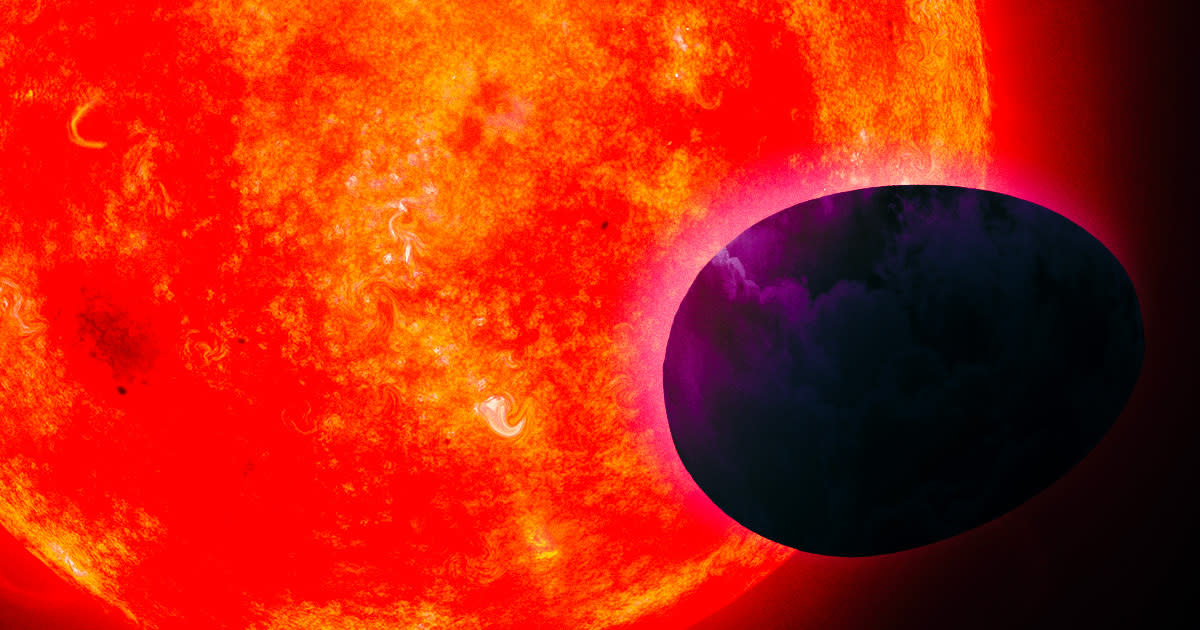Astronomers Intrigued by Planet Shaped Like Egg

Hard Boiled
Astronomers believe an egg-shaped exoplanet is hurtling towards its parent star faster than previously thought, Space.com reports.
It's called WASP-12b, and while the existence of an egg planet is delightful, don't get too attached: once it collides with its parent star, it'll disintegrate. And unfortunately for the exoplanet, a recent — though yet-to-be-peer-reviewed — paper suggests that it might reach its inevitable doom much sooner than anticipated.
Per Space.com, previous calculations have suggested that WASP-12b would have about 10 million years before perishing into its sun's blaze. This new research, though, put forward by a team at Italy's University of Padova, brings the exoplanet's remaining lifespan down to just three million years.
"According to our calculations, the planet will crash into the star in just three million years, an incredibly short amount of time considering the star only appears to be three billion years old," University of Padova scientist Pietro Leonardi, the lead author of the paper, told Space.com. (Though three million years is a pretty long time by Earthly standards, cosmically speaking it's the blink of an eye.)
Early Easter
According to Space.com, Leonardi and his teammates came to their conclusions by analyzing 28 separate observations of WASP-12b transiting its home star. The observations, gathered by the Asiago Observatory in Italy, were taken over a 12-year period ranging from 2010 to 2022.
Per NASA, WASP-12b, discovered in 2009, is located roughly 1,200 lightyears from Earth in the constellation Auriga. It's about twice the size of our Jupiter, and in fact is considered an "ultra-hot Jupiter," meaning it's an extremely hot gas giant— WASP-12b is believed to have a surface temperature of about 4,000 degrees Fahrenheit — that sits extraordinarily close to its home star.
For context, Earth is roughly 93 million miles from the Sun; at a staggeringly low distance of 2.1 million miles, WASP-12b completes a full orbit in a single day. This proximity also explains WASP-12b's egginess, as the gravitational tides it faces are so powerful that they've altered the gaseous planet's form.
Like all good things, though, WASP-12b will one day come to an end. Until then, enjoy the knowledge that, beyond our heavens, a massive gaseous egg is orbiting a distant star. And once WASP-12b does meet its fiery doom? Consider seeking a nice egg to get you through that trying time.
More on planets: Jupiter Used to Be Flat, Scientists Suggest

 Yahoo News
Yahoo News 
